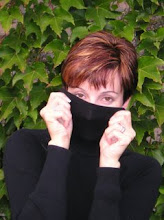December 7
"Christmas is Coming"
by Vince Guaraldi, performed by Dave Benoit,
for the album"40 Years: A Charlie Brown Christmas"
It's hard to believe that it's been over 40 years since the first Peanuts animated film appeared on our television screens. And after reading about the history of this program, it's even harder to believe that it made it to our television screens at all.
Judging by the choppy and primitive animation style, it will not come as news that "A Charlie Brown Christmas" was produced on a shoestring budget. However, when Charles M. Schulz was later approached with the idea of making improvements to the original film and soundtrack, he did not hesitate to veto the idea immediately. After all the good fights that had been fought to produce "A Charlie Brown Christmas" on HIS terms, Mr. Schulz was not about to allow anyone to change a single thing-- not for the sake of "progress", or even the availability of a bigger budget.
One of the many nits chief network executives picked about the show was its absence of a laugh track. How, they attempted to reason, would the American public know what was meant to be funny, unless it was explicitly indicated? Charles Schulz was adamant in his refusal, stating not only his faith in basic human intelligence, but also his fans' understanding and appreciation for the Peanuts characters. This did not stop chief executives from creating a version that included canned laughter, just in case Schulz changed his mind. He never did. Although it was never actually used on television, the dumbed-down "unauthorized" version of the film apparently makes an occasional appearance on the internet.
Executives also had qualms about the decision to use actual children to voice several of the characters, rather than hiring adults. Although Peter Robbins (the voice of Charlie Brown), Christopher Shea (Linus) and Tracy Stratford (Lucy) were experienced young actors, others had some difficulty. Kathy Steinburg, the little girl who played Sally, was so young that she couldn't read, and had to be cued one line at a time, throughout the entire production.
Apparently, the inclusion of jazz music composed by the great Vince Guaraldi was also felt to be an inappropriate choice for what CBS considered to be a "children's program".
Clearly, the Powers that Be had completely missed the point of what the "Peanuts" comic strip was actually all about.
As I'm sure you can all imagine, the BIGGEST fight that Charles M. Schulz had with the network was about the inclusion of Linus' monologue. Schulz, who was a deeply spiritual man, wanted to not only include the story of Christ's birth, taken from the Gospel of Luke, but he also insisted upon using the King James Version of the Bible as the script.
Executives tried every argument they could think of to influence him to cut the scene. They were convinced that the American public would completely loose interest in the show and change the channel... And when it became clear that they weren't going to win, they tried using a threat:
Executives also had qualms about the decision to use actual children to voice several of the characters, rather than hiring adults. Although Peter Robbins (the voice of Charlie Brown), Christopher Shea (Linus) and Tracy Stratford (Lucy) were experienced young actors, others had some difficulty. Kathy Steinburg, the little girl who played Sally, was so young that she couldn't read, and had to be cued one line at a time, throughout the entire production.
Apparently, the inclusion of jazz music composed by the great Vince Guaraldi was also felt to be an inappropriate choice for what CBS considered to be a "children's program".
Clearly, the Powers that Be had completely missed the point of what the "Peanuts" comic strip was actually all about.
As I'm sure you can all imagine, the BIGGEST fight that Charles M. Schulz had with the network was about the inclusion of Linus' monologue. Schulz, who was a deeply spiritual man, wanted to not only include the story of Christ's birth, taken from the Gospel of Luke, but he also insisted upon using the King James Version of the Bible as the script.
Executives tried every argument they could think of to influence him to cut the scene. They were convinced that the American public would completely loose interest in the show and change the channel... And when it became clear that they weren't going to win, they tried using a threat:
"We will, of course, air it next week,
but I'm afraid we won't be ordering any more."
Schulz was nonplussed. He is reported to have said:
"If we don't tell the true meaning of Christmas, who will?"
The rest, as they say, is history.
"A Charlie Brown Christmas" aired for the first time on December 9, 1965, and immediately became a critical and commercial hit.
In spite of all, the network's fears, Schulz had not over-estimated the public. People "got it". They loved every minute of the film, and found the primitive quirkiness of the production to be completely endearing.
Best of all, though, was the critical reception of Linus' monologue, which executives had railed so hard against.
Dorothy Van Horne, of The New York World-Telegram, wrote:
"Linus' reading of the story of the Nativity was, quite simply,
the dramatic highlight of the season."
For many of us... it still is.





























No comments:
Post a Comment